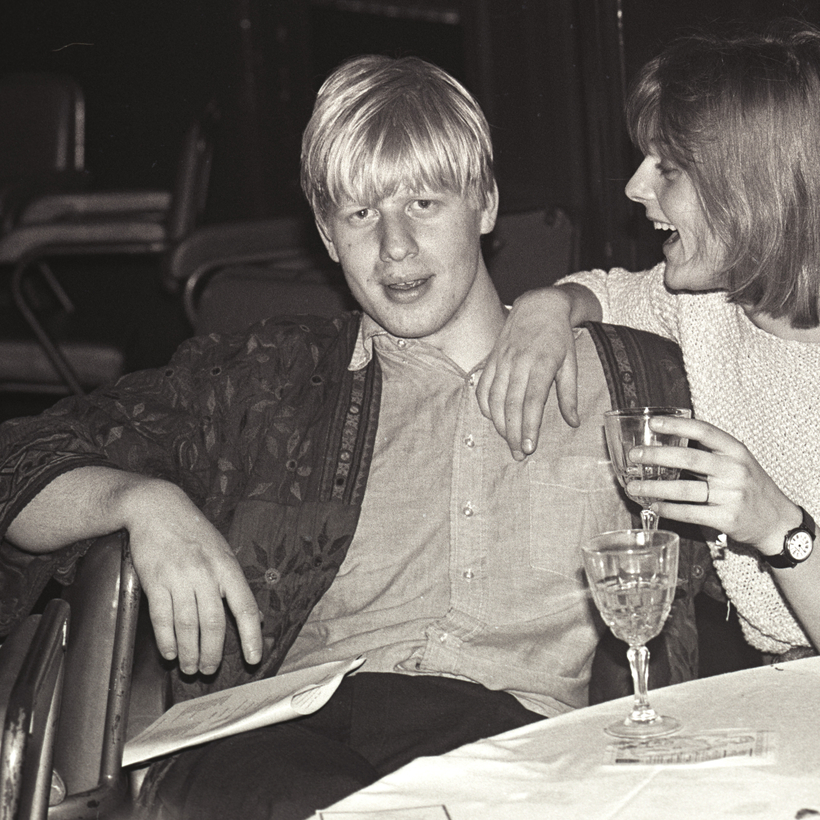When I was at university, I used to imagine that one day the other immature teenagers around me would become famous. It sort of happened. Admittedly, the people I was actually close to at Oxford University from 1988 to 1992 didn’t get there. They now live in provincial towns, with mortgages and problematic spouses.
But a cohort of private-school-educated Conservative men who were at Oxford with me, or just before me, did go on to drag the U.K. out of the European Union and now run the country. Boris Johnson is prime minister, and Oxford contemporaries of mine such as Dan Hannan, Jacob Rees-Mogg, and Dominic Cummings have helped remake the U.K.
For my new book, Chums: How a Tiny Caste of Oxford Tories Took Over the UK I tried to work out how they had done it. Eventually I realized: Even at 18, these men knew exactly where they were headed. They always expected to rule.

Almost every Oxford student in the 1980s had come from a relatively privileged background, but few belonged to the largely hereditary, all-male boarding-school elite. Many of the outsiders arrived at Oxford uncertain, terribly dressed and trying to find themselves. Suddenly they had to stride into dining halls wearing gowns and stand for graces in Latin. Some (especially women) wrestled with impostor syndrome, convinced they had been wrongly admitted.
Not so the Conservative posh boys. They had begun mastering the political art of public speaking—which is particularly valued in Britain—during high school. Johnson had run Eton’s debate society, and by the time he got to Oxford he was so well versed in traditional speech-making that he could perform it as parody. He knew how to win elections and debates not by boring the audience but with carefully timed jokes, calculated lowerings of voice, and ad hominem jibes.

He also already knew that the Oxford Union debate society—which many arriving students had never heard of—was the swiftest route to national power. Johnson’s game plan for Oxford, just like his father’s before him, included becoming Union president. He made it, as did his current right hand in the Cabinet, Michael Gove.
His sister, Rachel, told me: “They were given a huge head start, these guys. It’s like playing tennis—you can’t pick up a tennis racket and go and walk on center court and expect to beat Roger Federer.”
My colleagues and I at the student newspaper, Cherwell, were always mocking these remnants of an ancient Britain that seemed doomed to disappear. For my book, I found an article in which we named the Oxford debater Rees-Mogg “Pushy Fresher.” Studying the fading picture of the rail-thin 18-year-old dressed in a double-breasted suit like an upper-class middle-aged man, I realized: At 52, he’s unchanged. Like Johnson and Gove, he has even kept the hairstyle of his Oxford days.

Meanwhile, Hannan, as a first-year history student in 1990, founded the Campaign for an Independent Britain (soon joined by Rees-Mogg), which now looks like the genesis of Brexit.
These men had arrived at Oxford almost fully formed. School had given them the confidence, articulateness, and know-how to bestride the university. They didn’t waste time trying on new accents and personas; they already knew what they wanted to be when they grew up. They were climbing the greasy pole before most students had even located it. Today’s Britain was pre-cooked 35 years ago.

Simon Kuper is a columnist for the Financial Times and the author of several books, including Spies, Lies, and Exile and The Barcelona Complex. His latest, Chums: How a Tiny Caste of Oxford Tories Took Over the U.K., will be published on April 28 by Profile Books

